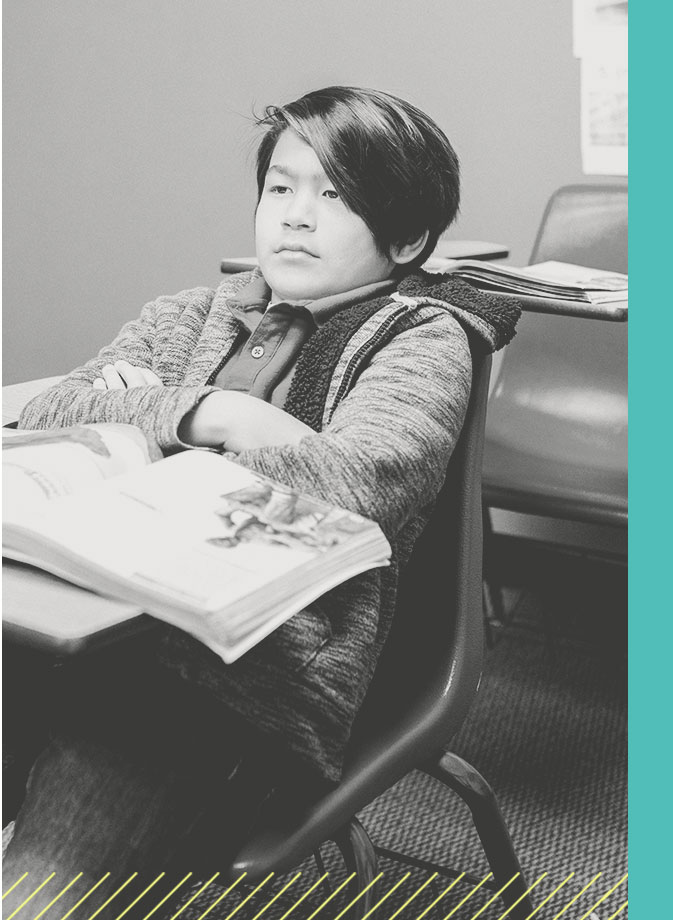RESOURCES TO HELP YOU ADVOCATE
INFO TO HELP YOU ADVOCATE FOR CHANGE
Familiarize yourself with the states where things are really bad
It’s hard enough being a kid these days, but when it comes to punitive school discipline, some states make it way harder. Our Punitive Index provides a calculation of the prevalence of punitive, exclusionary disciplinary practices for each state based on the weighted total of these practices relative to the estimated population of children under the age of 18 in the state.
Facts matter
Common sense and informed responses to misconceptions and misinformation about punitive, exclusionary disciplinary practices.
Learn about our non-punitive, non-adversarial intervention
Familiarize yourself with Collaborative and Proactive Solutions (CPS) which focuses on relationship-building, communication, skill-enhancement, and collaboration rather than punitive, ineffective disciplinary tactics. And read about what the CPS model can help your school achieve, and common misconceptions about the model.
Stay on top of the most current news
Follow us on Twitter for updates.


ADVOCACY WITH SCHOOLS
Organize a study group in your school and take the Guided Tour
Use the Assessment of Lagging Skills and Unsolved Problems (ALSUP) and the ALSUP Guide to learn how to solve problems collaboratively and proactively. It will help you focus less on modifying a challenging student’s problematic behavior and focus more on the problems that are causing that behavior.
Dedicate staff time for solving problems with students
There are pockets of time during the school day — before school, after school, during lunch, during recess, during prep time (if it exists) — to organize a system for providing coverage.
Partner with parents
Most conflict between parents and educators occurs because the parties never achieve common ground on a child’s lagging skills and unsolved problems. You have information about the student that can help the folks at home, and the home folks have information about the student that may benefit you at school. If you impose solutions on parents, don’t be surprised if they try to impose solutions on you. Blaming parents for the expectations their child is having difficulty meeting at school is misguided and counterproductive.
Use the data
The discipline referral system and the special education referral system are assessment practices that focus primarily on behavior and support obsolete, reactive ways of doing things. Eighty to ninety percent of the discipline referrals in your school are being accounted for by the same 10-20 students. That’s proof that all those referrals (and the detentions and suspensions that happen next) aren’t working. In other words, punitive school disciplinary practices aren’t working for the students who need your help the most and aren’t needed for the students who don’t have behavior problems.
Heighten awareness and change the structures
Is discipline in your classroom and school equitable for all students? Is your school disproportionately applying punitive discipline to Black and Brown students? Far better to be solving problems disproportionately than to be applying punitive discipline disproportionately. And far better to be viewing a student’s difficulties through the prism of lagging skills and unsolved problems than through the prism of race.
PARENT ADVOCACY
Partner with the caregivers at your school
Most conflict between parents and educators occurs because the parties never achieve common ground on a child’s lagging skills and unsolved problems. You have information about your child that can help the folks at school, and the folks at school have information about your child that may benefit you at home. Once a consensus on lagging skills and unsolved problems is achieved using the Assessment of Lagging Skills and Unsolved Problems, it’s usually a lot easier to achieve consensus on solutions.
Don’t accept the maltreatment of your child
There are always non-punitive, non-adversarial alternatives. Restraint and seclusion are usually acts of desperation that are deployed in situations that have already spun out of control in response to highly predictable unsolved problems. The first time a problem causes challenging behavior, it’s not a surprise anymore. And all those detentions and suspensions your child is receiving aren’t solving any problems and aren’t making classmates any safer. And paddling? That’s not an act of love; it’s an act of bullying.
Don’t accept blame for your child’s behavioral challenges
The folks who are blaming you may not realize you have other children in your home who are well-behaved. Blaming doesn’t help collaboration between parents and teachers, and everyone has an important role to play in helping your child.
Leverage our resources
Take the Guided Tour for Parents so you can practice and model collaboration in your home, with your spouse and your children. Having difficulty getting your spouse on board? Make sure he or she takes the tour too. Listen to the vast library of podcasts available on iTunes. And join our Facebook group for parents so you can get some support and collective wisdom. Then let the folks at school know how about those new lenses and practices are working for you at home.






